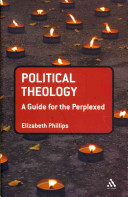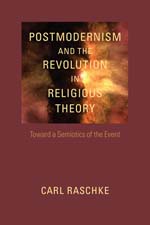
Many people have an immediate, visceral response to the word ‘ecumenical’. For some, it is a byword for the unity and cooperation which is most needed, necessary, and important for the church today. For others, it is a byword for a tired project which is showing its age along with those who entered into it with fervor in the 1960s and 1970s, and are still clinging to it along with outmoded theologies and expectations of unity. For the first kind of person, teaching political theology in an ecumenical context may be looked upon as a welcomed opportunity and important responsibility, while the second sort of person may shudder at the idea of the sort of bland, common-denominator teaching which can be found in some ecumenical contexts. How can the teaching of political theology in ecumenical contexts avoid this blandness while also not being too optimistic about ecumenical political theology?
Hope is not drawn from the world-that-is. Hope is grounded in perceptions of the world-that-ought-to-be. It arises from the power of the world-that-ought-to-be. For Christians, the world-that-ought-to-be is the eschatological Kingdom of God. It is expected in the future, in God’s time. But, it is also in the present, which is God’s time. The Kingdom is a perpetual possibility, even as its realization must be perpetually deferred in its fullness.
In my book, The Right of the Protestant Left (Palgrave, 2012), I tried to restore Niebuhr to his precarious place within what I called the “old ecumenical Protestant left.” The reality is, the more Niebuhr’s celebrity rose among those outside of the church, the more marginal I found that he became to the main currents of liberal American Protestantism. I’m not referring here to the pacifist circles that Niebuhr turned his prophetic pen on. Rather, his friends, colleagues, and younger brother were so frustrated by Niebuhr’s indifference toward building a inter-Protestant world community—their chief interest—that they even considered leaving him out of their project altogether. Niebuhr was eventually reconciled to the ecumenical movement by his critique of “secularism” and his analyses of national and world problems through the lens of “original sin.” Still, those closest to Niebuhr continued to deride him as the “sackcloth and ashes man,” the “sin-snooping” saint who was fundamentally out of touch with the Christian hope….

It is a challenge to reflect on politics and advent together. As advent emerges and we begin to anticipate the emergence of God’s presence into the world anew, as we expect the child who taught peace and preached liberation for the poor and oppressed, I cast my eyes on the political landscape and struggle to glimpse what might be breaking forth with new life. Perhaps this is a problem with how we conceptualize the birth of Jesus, as a grand cosmic event, an episode of a preordained salvation history, the inauguration of a new kingdom of peace on earth. There is another element to this extraordinary story, its ordinariness. Jesus is born in a Galilean backwater, to an unwed teen mother, lost in a crowd of travelers. Jeremiah prophesied to his ancient community about a time when justice and righteousness will emerge into history. We still await the fulfillment of this prophesy. But refracting this vision through the circumstances of Jesus’ birth will perhaps teach us to look for this hope in unexpected places…

Increasingly in liturgical circles it is becoming politically incorrect to talk about the “kingship” of Christ. Such a term now brings with it all the baggage of patriarchal interpretations of the biblical text. It calls to mind the exploitation brought about by colonial powers, abuses of power at the hands of politicians, and perhaps every abuse of power—abuses which represent heinous tragedy and sin. However, while we lament such abuse it is important to remember that power, in political terms, is itself neutral. It is a gift given by God in creation, which when wielded in the hands of human beings can be used for either selfish or selfless purposes (usually with correspondingly negative or positive results). Unfortunately, too often we as human beings struggle to monopolize power for our own sakes and consequently abuses occur…

We have all been around people who constantly tell stories in which the person telling the story is also the clear hero of the story. And none of us wants to be that person. I think this should be the case not only in the sharing of personal anecdotes, but in the stories we tell one another professionally about our professional lives, so it would be disingenuous to write a series on teaching political theology which leaves readers with the impression that I have it all figured out (or think that I do!). This month I want to share a story about a particularly persistent problem in teaching political theology – one to which I will not suggest I have the answer.
According to the Pew Forum on Religion in American Life, about two-thirds of Mormons consider themselves conservative, and another eight percent upon that Republican. Unfortunately, for both the Mormons themselves and Americans in total, Mormons in America appear to fit the prevailing stereotype about religious people in politics: Today, too often, “religious” means simply a particularly virulent form of the slightly more numerous species of “intolerant social conservative” or “Republican.” This is the fault both of the political mobilization of the Moral Majority and the Christian Coalition, in which religious people eagerly tried to cram God into the cramped box of American partisan politics, and of liberals who have come to see Christianity as primarily a political opponent and thus sneeringly dismiss centuries of profound truths about human nature and society. The term has been drained of the transcendent imagination which animated the Puritans and the civil rights movement alike….

In contemporary Western society we like to pride ourselves on having done away with what we would term ‘archaic’ systems, such as slavery. And so, when we hear such a system mentioned or even alluded to in a text like John 8:31-36, it is easy to write Jesus’ words off as anachronistic to our more ‘civilized’ approach. If we’re among the majority of such Westerners who know of no slavery in our ancestral background (or, if we do, whose ancestors were the slaveholders), then we may be tempted to object with Jesus’ disciples:
“‘We are descendants of Abraham and have never been slaves to anyone. What do you mean by saying, “You will be made free”?’” (8:33)
The first disciples resisted Jesus’ slave imagery, but not without irony. After all, the children of Abraham with whom they identify are the same children of Jacob who traveled to Egypt and were made slaves. Moses and Aaron led their ancestors through the wilderness so that they—the disciples, all the Jews, and by extension believers today—are children of the exodus; children for whom the reality of slavery is very real and near. And yet they resist this, practicing a form of selective amnesia rather than think of themselves as slaves.

Some challenges and opportunities are the same on either side of the pond for those of us teaching political theology. Those teaching in seminaries and other ‘confessional’ contexts will find the same resistance to ‘politicizing’ faith from conservative students and the same blasé assumptions from liberal students who obviously already have this all sorted because they are good liberals, both theologically and politically (more on these challenges in Part 3, next month). Those teaching in liberal arts universities will share similar struggles with how (or if) the discipline can be normative or formative in these contexts. And we will all share the wonderful opportunities involved in drawing students beyond their inherited binary views of the theological and the political. In other ways, the challenges and opportunities differ considerably on either side of the pond….

The ongoing riots and demonstrations throughout the Muslim world to protest a onetime obscure and amateurish movie made in Los Angeles have impressed on the Western secular mind that religious fervor, even if its expressions are frightening, is a growing planetary force to be reckoned with. What Derrida in 1993, miming Freud approximately two decades ago during the run-up to 9/11, dubbed “the return of religion” is a reality with which secular liberalism has had a hard time reckoning….

It seems easy. So easy we can almost brush it off. Smile approvingly at the Sunday School teacher seated across the aisle from us in worship, and check one more thing off our spiritual to-do-list. Welcome little children? Done. We might ask ourselves, “How dense could these power grubbing disciples have been to miss so simple a point as this?”
But take a look across that same aisle once again… If your church is like many, there may be an usher giving a mother a dirty look as she walks her small child to the bathroom. Or a father putting his finger to his lip, afraid that his toddler’s whispers might disrupt someone. Or maybe a middle-aged gentleman checking the church’s giving record, calculating in his head what percent of the church’s income comes from his check. Or a young woman dressed just so, glancing at a hand mirror to check her make up….